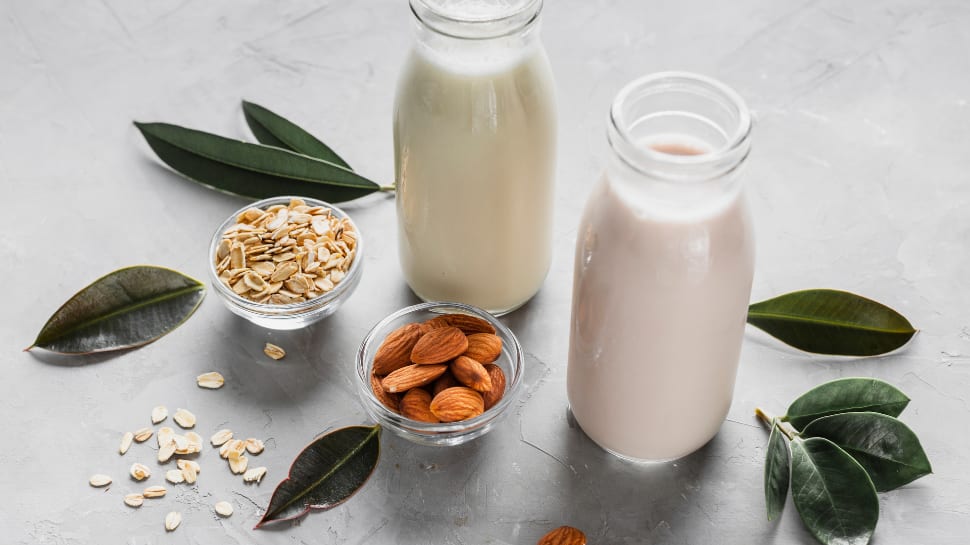Plant-based milk isn’t just a passing trend; it’s quickly becoming a lifestyle choice for millions around the world. Once upon a time, we were encouraged to drink a glass of cow’s milk every day for strong bones and good health. But over the years, the way we consume milk has started to change. What was once found only in specialist health food shops, like almond, soy and oat milk, has now become a staple in cafés, supermarkets and home kitchens alike. So what’s really driving this growing shift from traditional dairy to plant-based alternatives?
Why Are People Switching to Plant-Based Milk?
1. Lactose Intolerance and Allergies
A large number of adults find it hard to digest lactose, the natural sugar found in dairy. This can lead to bloating, gas and other digestive discomfort. Plant-based milks are naturally lactose-free, making them a gentle and tasty choice for those who can’t tolerate dairy.
2. Health-Conscious Choices
More people are paying attention to how much saturated fat and cholesterol they consume. Unsweetened plant-based milks generally have lower levels of both, which makes them appealing for anyone aiming to support heart health and manage their weight.
3. Environmental Concerns
Producing dairy milk takes a huge amount of resources, including water, land and animal feed, and also contributes to greenhouse gas emissions. In comparison, plant-based milks usually need less water and produce fewer emissions, making them a more sustainable option for those who care about the environment.
4. Dietary Preferences
As vegan, vegetarian and flexitarian diets become more popular, plant-based milks fit naturally into these lifestyles, offering variety without relying on animal products.
Popular Types of Plant-Based Milk
Soy Milk
One of the oldest and most balanced alternatives, rich in protein and often fortified with calcium, vitamins and minerals, such as vitamin D and B12.
Almond Milk
Light and slightly nutty in flavour, low in calories, carbs, and fat, and is naturally high in nutrients, such as vitamin E.
Oat Milk
Creamy, naturally sweet and popular with coffee lovers because it foams well. It’s also a good option for those with nut allergies.
Rice Milk
Naturally sweet and lighter in texture, often chosen by people with multiple allergies. It has a thin consistency, sweet taste, and works well as a milk alternative. Its is low in protein, yet high in carbs.
Coconut Milk
Creamy and slightly sweet with a tropical flavour, although it’s usually low in protein. Coconut-based milk products are often fortified with nutrients such as vitamin B12, vitamin D, and calcium.
Cashew Milk
Smooth and subtly sweet, ideal for drinking or adding to recipes. It’s low in calories and protein and contains more fat than most plant-based milks. Cashew milk is often fortified with vitamin D, calcium, and vitamin A.
Health Benefits of Plant-Based Milks
1. Lower Saturated Fat & Calories
Most unsweetened nut, grain and seed milks contain fewer calories and less saturated fat than whole dairy milk, which can help support heart health and weight management. They are also naturally lactose-free and free from cholesterol, making them easier to digest for many people and better for maintaining healthy cholesterol levels.
2. Lactose & Cholesterol Free
Ideal for those with lactose intolerance or aiming to reduce cholesterol intake.
3. Plant Protein Boost
Plant-based milks like soy and pea milk are good sources of protein, which is important for muscle repair and feeling full for longer. Nut and seed milks also contain heart-healthy unsaturated fats, while natural antioxidants help reduce inflammation and support overall wellbeing.
4. Heart-Healthy Fats
Nut and seed milks offer unsaturated fats that help maintain healthy cholesterol levels.
5. Natural Antioxidants
These compounds can help fight inflammation and oxidative stress, supporting overall wellness.
6. Added Vitamins & Minerals
Many plant-based milks are fortified with nutrients like calcium, vitamin D and vitamin B12, which are essential for bone health and metabolism, especially for those following vegan diets. Unlike cow’s milk, some varieties such as oat and pea milk also offer a little dietary fibre, which can help with digestion.
7. Fiber Content
While dairy lacks fiber, some plant-based milks, especially oat and pea add a small boost, supporting digestion.
Switching to plant-based milk is a small and simple change that can make a big difference to both your health and the environment. Whether its because of dietary needs, sustainability concerns or simply the enjoyment of new flavours, more people are discovering that plant-based milks can be just as versatile and nourishing as traditional dairy.
(This article is meant for informational purposes only and must not be considered a substitute for advice provided by qualified medical professionals.)

